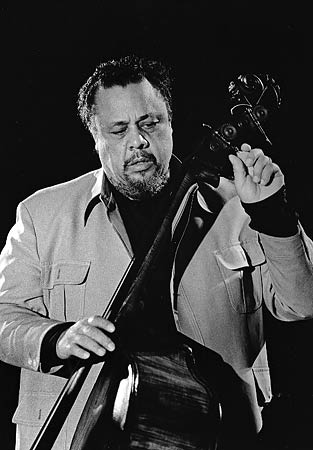Here's a fun experiment in perspective.
Take the phrase, "You and what army?" It's original meaning being, "You are not tough enough to actually win in a fight with me for I am powerful enough to succeed in a battle with several well-trained men." This phrase became popular in the early, post-WWII, 50's, as a means of intimidating one's adversary. But, between Bruce Lee and Arnold Schwarzenegger, who had the abilities to destroy entire armies all by their lonesome, the phrase has all but been retired to the annals of history.
Still, there are times when the finger is pointed at you and the question is asked. And one must count his list of allies to best decide how to contend with the situation.
So, when the President Of the United States gets asked "You and what army," he needs simply but to point towards the nearest military installation (or given our current deployment situation, in the direction of Iraq,) to show his army. Said adversary now has to contend with a large military force, instead of a single, gray-haired, old man.
If a US military corporal finds himself in a similar situation, and is asked the same question, he simply needs to point to his platoon. The option of confronting a single well-trained military man no longer exists. You see, this simple phrase can illicit a variety of fear-inducing situations dependent solely on who's perspective you look at it from.
It gets really funny when you look at both these scenarios and try to guess which of them has the stronger army.
Give up? Why, the corporal does of course.
The corporal's army is actually acquainted with the corporal. It means these guys know what kind of person he is, and trust him with their lives in a firefight. This man is their buddy, their comrade, their brother in arms. These men have been forced together by conflict, and are ready to protect each other in a pinch should the hammer come down. This also means, they've got a pretty good line on what this corporal is like. So, when the phrase in question is uttered, and the ensuing conflict is a righteous one, that army will leap to the cause. And if the corporal happens to be drunk, overly aggressive, or simply having a bad day, well then that army might do everything in their power to prevent a fight from taking place.
And the Presidents army? Well he does not have the luxury of comadre. Matter of fact, it would be a safe bet to say that the man probably doesn't know most of those troops on a personal basis. His army is derived from the fact that he hired the men who writes their paychecks, and that makes him the boss. A faceless figurehead atop an unseen mountain. Naturally, most people do what their boss tells them to do, but there's a catch. You see, it is a common belief amongst the employed that their supervisor may not have everyone's best interests at heart. It's possible that the man in charge is being fueled by other forces, and making his people do things that a rational person may not otherwise instruct upon his people.
This means that dissension can occur at any given time. Said army can start to take a little bit of what they're ordered to do a bit personally. See, when the corporal starts falling out of line, his squad of loyal brethren are right there to inform him, "Dude you're being a douche." Whereas the president can be a douche and never know it. Therefore, the corporal's army, though smaller, is far more loyal to corporal than those huge battalions are to the president. And when the corporal is in the wrong, his colleagues might set him up with a life lesson, whereas if the President is in the wrong, well he might eventually see a lot of very angry guns being pointed at him.
And the moral? I don't know. I don't think there was one. This was merely an exercise in futility. Hope you had fun!
March 2, 2008
You And What Army?
at
11:05 AM
![]()
![]()
Labels: Moments Of Clarity
Subscribe to:
Post Comments (Atom)
























No comments:
Post a Comment